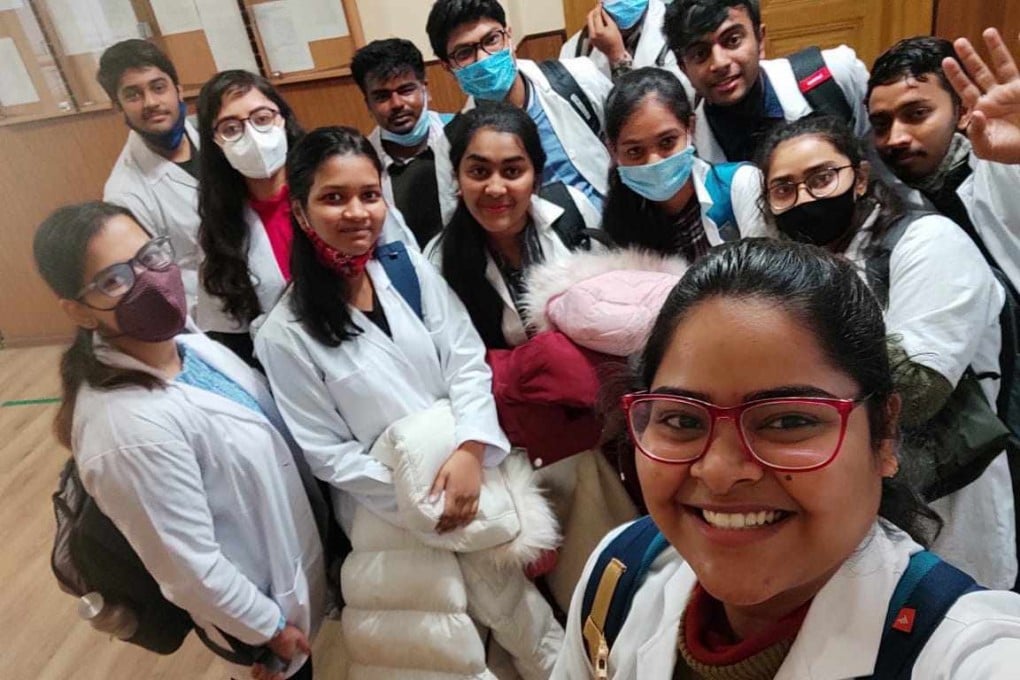As war rages, Indian medical students who fled Ukraine face apathy and uncertain future
- Four months after being evacuated from the war-torn country, Indian students are disenchanted with government’s delay in making a decision about their future
- Many parents have financed their children’s education by mortgaging their homes – they have repeatedly petitioned ministers and officials for answers and help

For three decades, Ukraine has been a popular destination for Indian students pursuing medical and engineering degrees. About 30 Ukrainian medical colleges offer courses at a fraction of the fees charged by private colleges in India. The six-year bachelor of medicine and bachelor of surgery (MBBS) course costs about US$25,000 to US$30,000 compared to three times the cost in India.
Many students’ parents have financed their education by mortgaging their homes or selling their jewellery and are unable to bear further costs. They have repeatedly petitioned ministers and officials for answers and help, but have received no satisfactory response.
“My child is a second-year student in Ivano (western Ukraine). But his future is uncertain due to the crisis unfolding there. We have requested the government to take care of our children’s careers the same way they saved their lives by evacuating them from the ravaged country, but we’re receiving no clear answers,” said Harsh Aggarwal, father of Nimish Aggarwal, a dentistry student from Delhi.